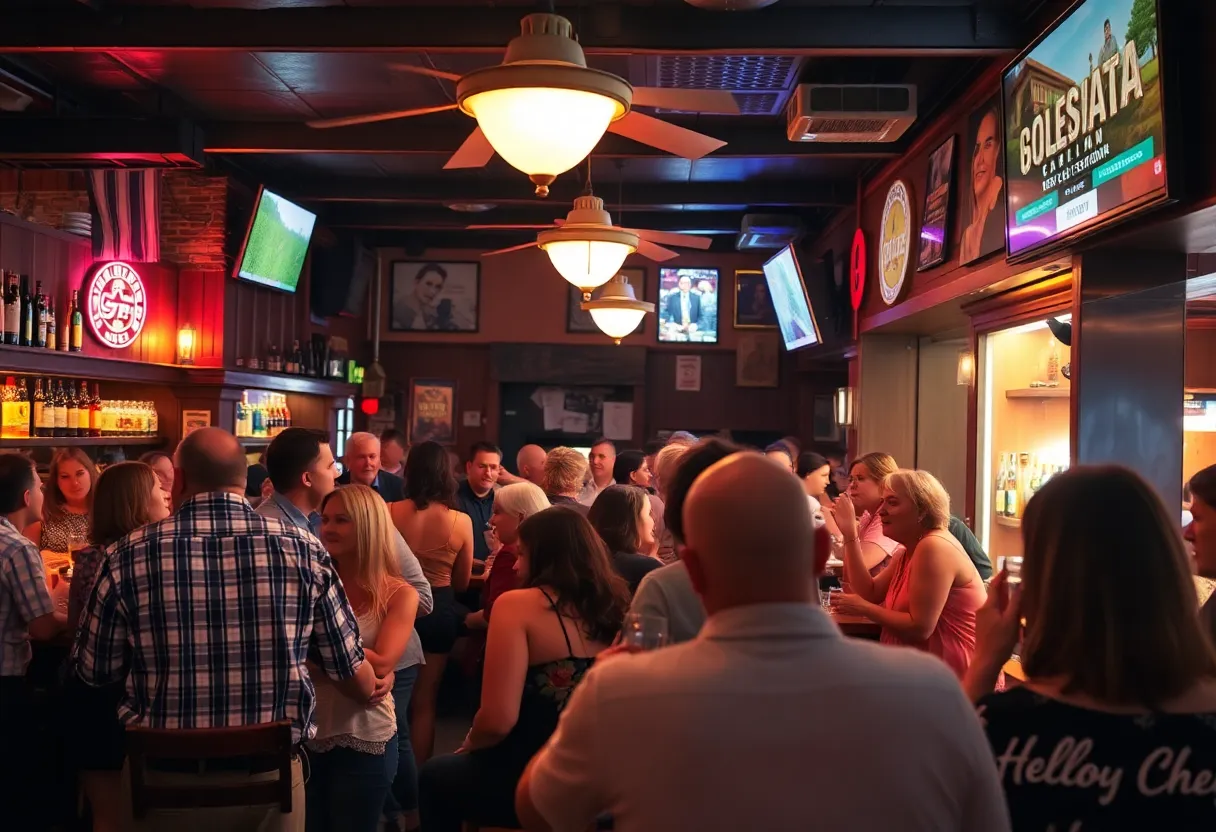News Summary
South Carolina lawmakers have enacted bipartisan reforms to address rising liquor liability insurance premiums affecting local bars and restaurants. Following alarming reports of closures due to high costs, new legislation aims to balance victim compensation with the economic sustainability of establishments. The proposed changes include lowered minimum insurance coverage based on alcohol sales and improved tracking of insurance rates. Support from local officials highlights the importance of the hospitality industry in sustaining the state’s economy, though concerns from advocacy groups about victim protections remain.
South Carolina lawmakers have passed a bipartisan reform aimed at addressing the rising liquor liability insurance premiums that have negatively impacted local bars and restaurants throughout the state. The new legislation comes in response to alarming reports of several establishments closing due to the prohibitive costs associated with mandatory insurance requirements.
Business owners have expressed significant distress over insurance premium increases, many reporting that their renewal costs have more than doubled for 2024. Amid these escalating expenses, some insurance providers have pulled out of the state, further exacerbating the financial burden on small business owners. Establishments like The Brew Cellar, which has been in operation for 11 years, have announced their closures directly linked to the challenging liquor liability law environment.
Newly elected State Sen. Ed Sutton has been a pivotal figure advocating for reforms to the existing liquor liability laws. He seeks to introduce changes that strike a balance between ensuring proper compensation for victims of alcohol-related incidents and maintaining the economic viability of local businesses. The current state law, instituted in 2017, mandates that all establishments that serve alcohol after 5:00 p.m. carry a minimum insurance policy of $1 million, a requirement that has proven burdensome for many small owners.
The proposed reforms aim to address the rising costs and unfriendly insurance landscape while still protecting victims of alcohol-related incidents. The bipartisan agreement reached by lawmakers includes provisions for joint liability in such incidents, which is expected to alleviate some of the financial pressures on bar and restaurant owners. The new bill also proposes that minimum insurance coverage could be decreased based on the percentage of alcohol sales and compliance with server training programs.
Additionally, the legislation introduces stronger measures for tracking insurance rates and losses within the hospitality sector, providing a framework for ongoing analysis of the industry’s financial health. This data tracking could help inform future legislative adjustments and ensure businesses can sustain their operations without facing untenable insurance costs.
The reform package is introducing much-needed relief to an industry that plays a crucial role in supporting South Carolina’s tourism and local economies. With tourism being a substantial contributor to the state’s fiscal well-being, improving conditions for local bars and restaurants is seen as vital for nurturing the cultural and economic landscape of the area.
Support for the proposed reforms extends beyond lawmakers, with local officials recognizing its importance. Charleston Mayor William Cogswell has expressed his support for the initiative, emphasizing that the health of the hospitality industry is pivotal for sustaining the local economy and culture.
Despite the advances made by lawmakers, not all stakeholders are uniformly pleased with the changes. Various victim advocacy groups have voiced opposition to alterations in liquor liability laws, citing concerns that loosening the requirements could diminish protections for victims. As the bill prepares to be brought to a vote, the ongoing debate demonstrates the complexities involved in balancing economic stability with public safety and victim rights.
As plans to finalize the reform legislation move forward, there is optimism among business owners and supporters that the measures will soon be signed into law by the state’s governor. The anticipated reforms signal a much-needed adjustment in how South Carolina approaches liquor liability insurance, providing hope for the vibrant bar and restaurant scene under renewed operational viability.
Deeper Dive: News & Info About This Topic
- Charleston Business
- Post and Courier
- ABC News 4
- CountOn2
- Encyclopedia Britannica: South Carolina liquor liability insurance

Author: STAFF HERE FLORENCE WRITER
The FLORENCE STAFF WRITER represents the experienced team at HEREFlorence.com, your go-to source for actionable local news and information in Florence, Florence County, and beyond. Specializing in "news you can use," we cover essential topics like product reviews for personal and business needs, local business directories, politics, real estate trends, neighborhood insights, and state news affecting the area—with deep expertise drawn from years of dedicated reporting and strong community input, including local press releases and business updates. We deliver top reporting on high-value events such as the Florence Festival of Lights, Pee Dee Pride, and agricultural expos at the Florence Center. Our coverage extends to key organizations like the Florence Regional Chamber of Commerce and the Pee Dee Area Council of Governments, plus leading businesses in healthcare and retail that power the local economy such as McLeod Health and Pee Dee Electric Cooperative. As part of the broader HERE network, including HERECharleston.com, HEREColumbia.com, HEREGreenville.com, and HEREHiltonHead.com, we provide comprehensive, credible insights into South Carolina's dynamic landscape.





